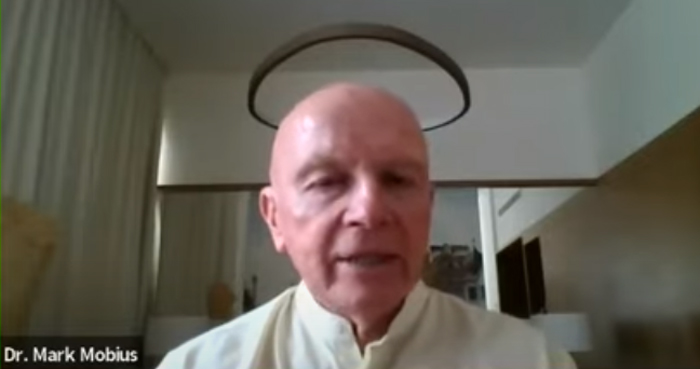June, 29, 2020

Sri Lanka has to move more aggressively with privatisation of State-Owned Enterprises, which will give an incredible boost to the economy, a global investor said.
"I'm very very interested in investing in Sri Lanka. So I have a very positive feeling towards Sri Lanka. I think Sri Lanka has to move more aggressively with privatisation of State-Owned Enterprises, which I think will give an incredible boost to the economy,” Mark Mobius, an emerging market investor said in a webinar with Colombo-based John Keells Stock Brokers.
Mobius further stated that Sri Lanka must first look at its domestic market. In other words, the country must increase production to meet domestic requirements and then look at exports like tea, service, and tourism.
“I think in the case of Sri Lanka, first of all, you got to look at the domestic market demand. In other words, increasing production to meet domestic requirements. The second area is the export; the tea exports and the service exports and also tourism. You have to look at tourism as a sort of software export because you are servicing people coming into the country," he said.
“Lot of people think COVID-19 will end globalisation. I don’t think so. The incredible impact of the internet mean people can communicate around the world in an instant and this generates trade and tourism. The lockdown is temporary and as it ends we will see a pickup of services. However, in the case of Sri Lanka, the country must specialize. You want to emphasise higher-end tourism not mass tourism, and this can be very profitable at the end of the day,” he added.
Meanwhile, responding a query on new monetary policy frameworks and their importance for growth, Mobius expressed the following:
"Too much emphasis is put on a Central Bank’s ability to solve problems. Central banks are not in a position to recover an economy or solve all these economic problems. But unfortunately, people depend on central banks to do something."
Hence, “Central banks keep on printing money and buying commercial bonds and this infuses a lot of liquidity into the market. The result of that is not inflation but devaluation of currency, because nowadays no one knows what the real money supply is. It will look like prices are rising but in fact, technology is keeping up with these changes and products are getting better and better and services."
“So, in fact, we are in a deflationary environment rather than an inflationary position. It is unfortunate that Central Banks are put in that position because they really cannot do much. What can help the economy is putting people back to work," Mobius said.
“Reducing unemployment, that’s the reason I believe this lockdown has to end. Otherwise, these economies will not recover. You can put a lot of money into banks but banks will question where do I lend and why should I lend to a company that is going under? The solution is not more money, the solution is more jobs,” he stressed.
Speaking further he stated that the massive money printing recently has not shown much inflation, partly due to productivity gains by companies.
“The result of that is not inflation but devaluation of currencies.”
“If you look at some of these emerging market currencies actually they have not declined that much against the US dollar,” Mobius said.
The Sri Lankan rupee actually has been remarkably resilient and relatively stable with a 7% devaluation and some recovery. Single-digit changes in currency was “not a very big problem," he added.
“You probably not want to have big swings in currency,” Mobius said. “That is not a healthy thing.”
“So I’m quite pleased with the way that Sri Lankan rupee has been relatively stable," he added.
Video Story